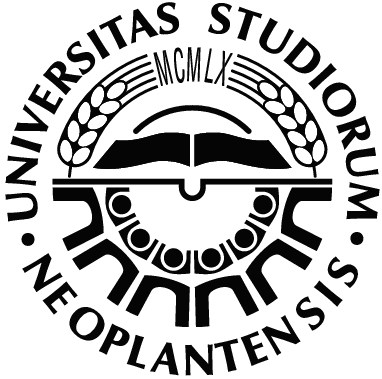
University of Novi Sad - UNS (www.uns.ac.rs) is the second biggest University in Serbia, only state university in the Autonomous Province of Vojvodina, comprising 14 faculties and 2 research & developmental institutes. There are more than 50,000 students, 5,000 teaching and non-teaching staff, and 300 study programmes at all three academic cycles. It is a comprehensive university covering all major fields of study and research. UNS is rather active in the international collaboration field, participating in both educational and research projects (ERASMUS +, TEMPUS, HORIZON 2020, FP7, EUREKA, COST, IPA, etc.). When the number of TEMPUS projects in which the UNS has participated is concerned, UNS is the top leader both in the country and the region. UNS has become recognized as a reform-oriented university, developing intensively international cooperation with HEIs and having considerable experience in implementing academic mobility programs, e.g. Campus Europe, Erasmus Mundus Action 2, ERASMUS+ KA 1.
Recently UNS set a new strategic goal to become more visible in the international research area and recognized as excellent University. As a starting point in reaching this goal, UNS submitted and was approved the first teaming project within HORIZON 2020 initiated by BIOSENSE research group Centre of Excellence for Advanced Technologies in Sustainable Agriculture and Food Security (ANTARES) becoming the only University in the region implementing this prestigious project.
Faculty of Technical Sciences (FTS) was established in UNS (1960). It consists of 13 departments, 10 administrative services and 31 research centres in 8 buildings, with over 11,000 students and 1,100 employees. FTS ranks among the largest and most developed faculties in the region, has been issued the certificates EN ISO 9001:2008, ISO 14001:2009 and OHSAS 18001:2007. There are more than 300 cooperation agreements signed with companies from Serbia, WBR and leading international firms such as SIEMENS, TOSHIBA, FESTO.
Disaster Risk Reduction and Research Centre constituted in 2009, followed by creation and accreditation of first academic interdepartmental multidisciplinary engineering study programme in 2011. Disaster Risk Management and Fire Safety Engineering studies are implemented on Department of Civil Engineering, supported by Industrial Engineering and Engineering Management and Environmental Engineering departments. In 2015/2016 academic year there are over 200 students enrolled, and until 2015, over 70 graduated engineers.








